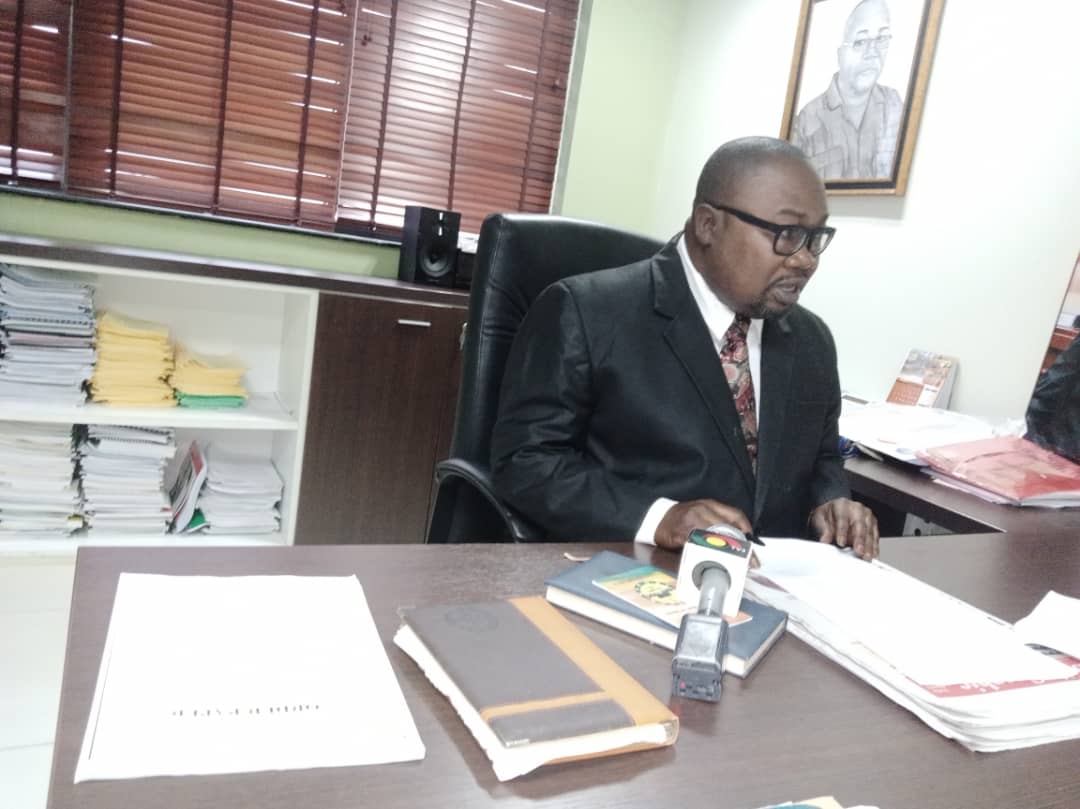As the world commemorates World Tuberculosis (TB) Day, the MP for Nabdam, Mark Kurt Nawaane, has called on stakeholders to help bridge the funding gap to prevent, diagnose and treat the disease.
Currently, Ghana needs a minimum of $18 million a year for effective national TB care to be able to end it by 2030. Unfortunately, with the support from civil society, the country is only able to raise an average of $ 7 million annually instead of $18-million-dollar, leaving a huge funding deficit.
Statement
The Deputy Ranking Member on Health in parliament, Mr Nawaane, told the media in parliament on Friday when he presented a statement to mark the day.
The MP for Nabdam said currently, an estimated 13 billion dollars globally is needed annually for TB prevention, diagnosis, treatment and care to achieve the global target agreed upon at the UN high-level meeting on TB in 2018.
This year's theme is: “Yes! We can end TB."
He said domestic funding from the government could be described as sub-optimal. Ghana is doing 10 per cent while the rest of the sub-region is doing 50 per cent.
World TB day is a day set aside to raise public awareness about the devastating health, social and economic consequences of tuberculosis and to step up efforts to end the TB epidemic.
History
The date marks the day in 1882 when Dr Robert Koch discovered the bacterium that causes Tuberculosis which opened the way towards diagnosing and curing this disease.
Tuberculosis is caused by mycobacterium Tuberculosis. It spreads through the air when a person with TB disease of the lungs or throat coughs, speaks or sneezes and people nearby breathe in these bacteria and become infected.
"But TB can be treated and cured by using antibiotics. Indeed, TB is curable and preventable," he said.
The MP said TB has overtaken HIV/AIDS as a leading infectious killer.
The prevalence of TB in Ghana is estimated at 200 per 100,000 of the population.
In 2020, 20,000 new cases were recorded; in 2021, 13000 new cases and in 2022, 16,500 new cases.
Indeed, he said as of March 2022, there were 76,000 people who had TB with another 400 identified having multi-drug resistant.
However, the lawmaker said the death rate in the country fell from 49 cases in 2002 to 36 cases per 100,000 of the population in 2021.
In Ghana, the data shows that a minimum of three persons die a day from TB. There is, therefore, a great variance between the UN’s targets for Ghana and the reality of work done in Ghana.
Equipment
"At the heart of TB care is the accurate diagnosis of cases in the country and the medical equipment used is the GeneXpert.
"There are 261 districts, Municipal and Metropolitan Assemblies. However, there are 168 GeneXpert machines in the country," he said.
Mr Nawaane said what it means is that, 93 districts Health facilities do not have this equipment to assist diagnose cases. He said there were problems associated with the transportation of the sputum to the sites of these limited GeneXpert machines.
"The cartridges that are used in the procedure are sometimes in short supply, thus delaying the diagnostic process. Also, there are 73 Computer Assisted Digital X-rays machines which are used to assist diagnose cases of chest infections including TB. This is woefully inadequate," he added.
He said this year is critical, with opportunities to raise visibility and political commitment at the 2023 UN high-level meeting on TB.
It will also be used to assess the state of the short oral treatment and TB prevention therapy.
Mr Nawaane reckoned that people with TB were among the most marginalised and vulnerable facing barriers in accessing care and stigmatisation.
"TB incidence is high in areas of inhumane living or working conditions. These include overcrowding in our prisons, slums and mining sites," he said.
Subsequently, the MP recommended a high-level meeting to be held by all stakeholders (Government officials, non-state actors, civil society organisations, and businessmen among others) to discuss the issue of complementing the current financing module of TB in the country.
Also among his remedial measures is for government to create an emergency fund to support the call to end TB in Ghana.

